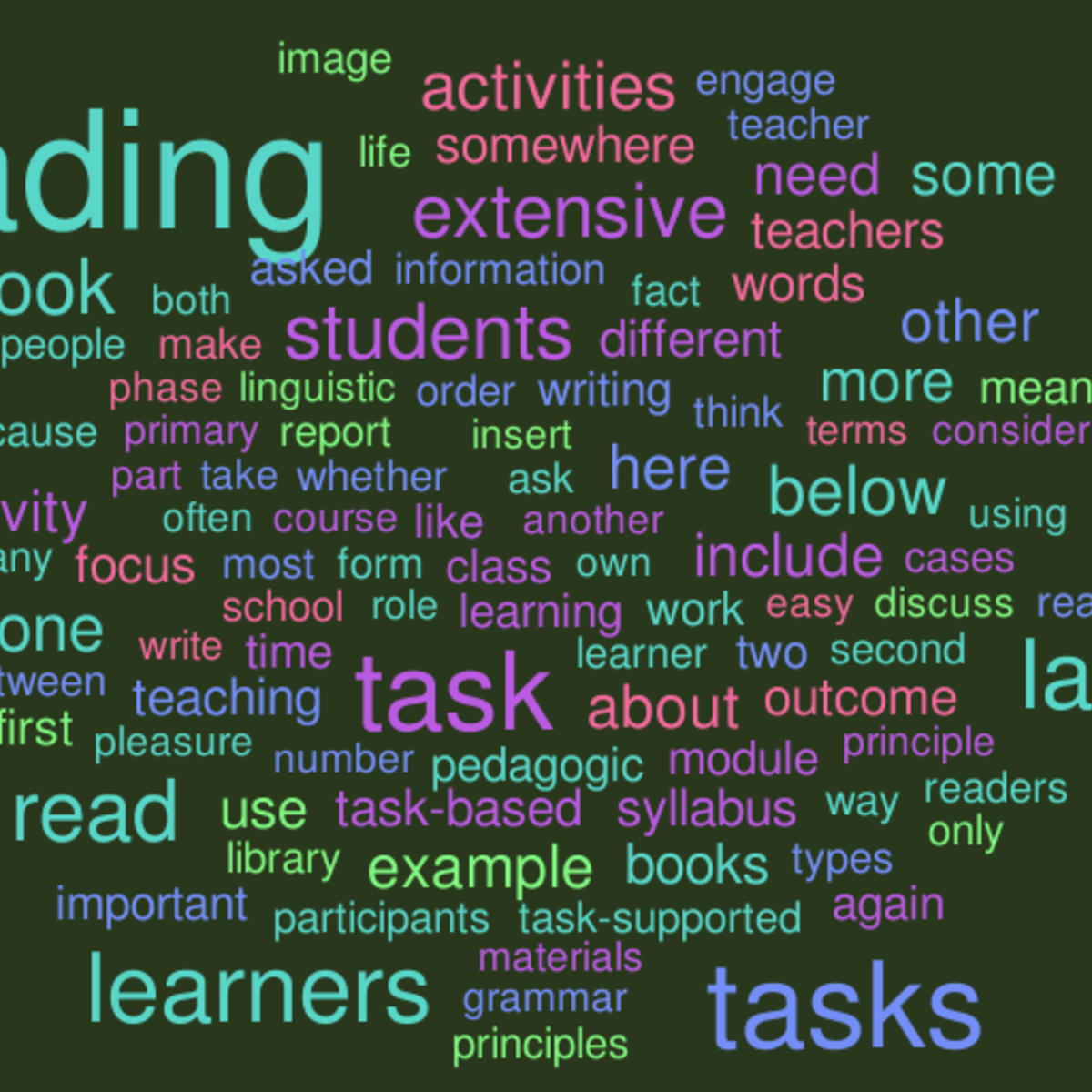
This course explores ways of teaching reading skills in English as Second and Foreign Language (ESL/EFL) using a task-based approach. You will be introduced to the concept of task and the key principles of task-based language teaching (TBLT) and learning. TBLT uses communicative tasks as the key unit for creating language learning activities. You will also examine the role of reading in real-life and in second and foreign language teaching and current thinking about the interface between TBLT and second language reading. You will explore how TBLT and teaching second language reading can be successfully integrated in practice through analysing task-based reading materials. The course culminates in creating task-based materials for teaching reading in your own language teaching contexts.
Read more
This course explores ways of teaching reading skills in English as Second and Foreign Language (ESL/EFL) using a task-based approach. You will be introduced to the concept of task and the key principles of task-based language teaching (TBLT) and learning. TBLT uses communicative tasks as the key unit for creating language learning activities. You will also examine the role of reading in real-life and in second and foreign language teaching and current thinking about the interface between TBLT and second language reading. You will explore how TBLT and teaching second language reading can be successfully integrated in practice through analysing task-based reading materials. The course culminates in creating task-based materials for teaching reading in your own language teaching contexts.
This course explores ways of teaching reading skills in English as Second and Foreign Language (ESL/EFL) using a task-based approach. You will be introduced to the concept of task and the key principles of task-based language teaching (TBLT) and learning. TBLT uses communicative tasks as the key unit for creating language learning activities. You will also examine the role of reading in real-life and in second and foreign language teaching and current thinking about the interface between TBLT and second language reading. You will explore how TBLT and teaching second language reading can be successfully integrated in practice through analysing task-based reading materials. The course culminates in creating task-based materials for teaching reading in your own language teaching contexts.
After completing the course, you will be able to:
1. Explain the main components and tenets of a task-based approach to teaching language;
2. Explain the main issues involved in teaching reading;
3. Illustrate connections between TBLT approaches and the teaching of reading;
4. Integrate tasks into your own teaching;
5. Identify reading texts that are suitable for the construction of tasks; and
6. Construct reading tasks and sequences for use in your own classroom.
What's inside
Syllabus
Introduction to the Course
Welcome to 'Teaching EFL/ESL Reading: A Task Based Approach!'.
What is Task-based Language Teaching (TBLT)?
Welcome to module 1! In this module we will be looking at some key concepts and issues that surround the role of tasks in second language learning and teaching. First, we will define what we mean by the notion of task. Then, we will consider different task types and the role of tasks in the syllabus. We will also discuss the rationale for using tasks in second language teaching, and how task-based lessons and sequences are typically organized. The module ends with an interview with Dr. Nick Andon from Kings' College London, who is an international expert on task-based language teaching.
Read more
Syllabus
Good to know
Save this course
Reviews summary
Positive reading course
Activities
Complete the Coursera 'Task-Based Language Teaching' quiz
Show steps
Test your understanding of key TBLT concepts and methodologies through this interactive quiz.
Browse courses on
Task-Based Language Teaching
Show steps
-
Access the quiz through the Coursera platform.
-
Read the instructions carefully and answer each question to the best of your ability.
-
Review your results and identify areas where you need further clarification.
Show all one activities
Complete the Coursera 'Task-Based Language Teaching' quiz
Show steps
Test your understanding of key TBLT concepts and methodologies through this interactive quiz.
Browse courses on
Task-Based Language Teaching
Show steps
- Access the quiz through the Coursera platform.
- Read the instructions carefully and answer each question to the best of your ability.
- Review your results and identify areas where you need further clarification.
Career center
Associate Professor
Applied Linguist
TESOL Teacher
Educational Researcher
Reading Interventionist
Literacy Coordinator
ELL Teacher
Teacher of Students with Learning Disabilities
Instructional Designer
Literacy Coach
Reading Specialist
Language Teacher
Educational Consultant
Curriculum Developer
Professor
Reading list
Share
Similar courses
OpenCourser helps millions of learners each year. People visit us to learn workspace skills, ace their exams, and nurture their curiosity.
Our extensive catalog contains over 50,000 courses and twice as many books. Browse by search, by topic, or even by career interests. We'll match you to the right resources quickly.
Find this site helpful? Tell a friend about us.
We're supported by our community of learners. When you purchase or subscribe to courses and programs or purchase books, we may earn a commission from our partners.
Your purchases help us maintain our catalog and keep our servers humming without ads.
Thank you for supporting OpenCourser.


